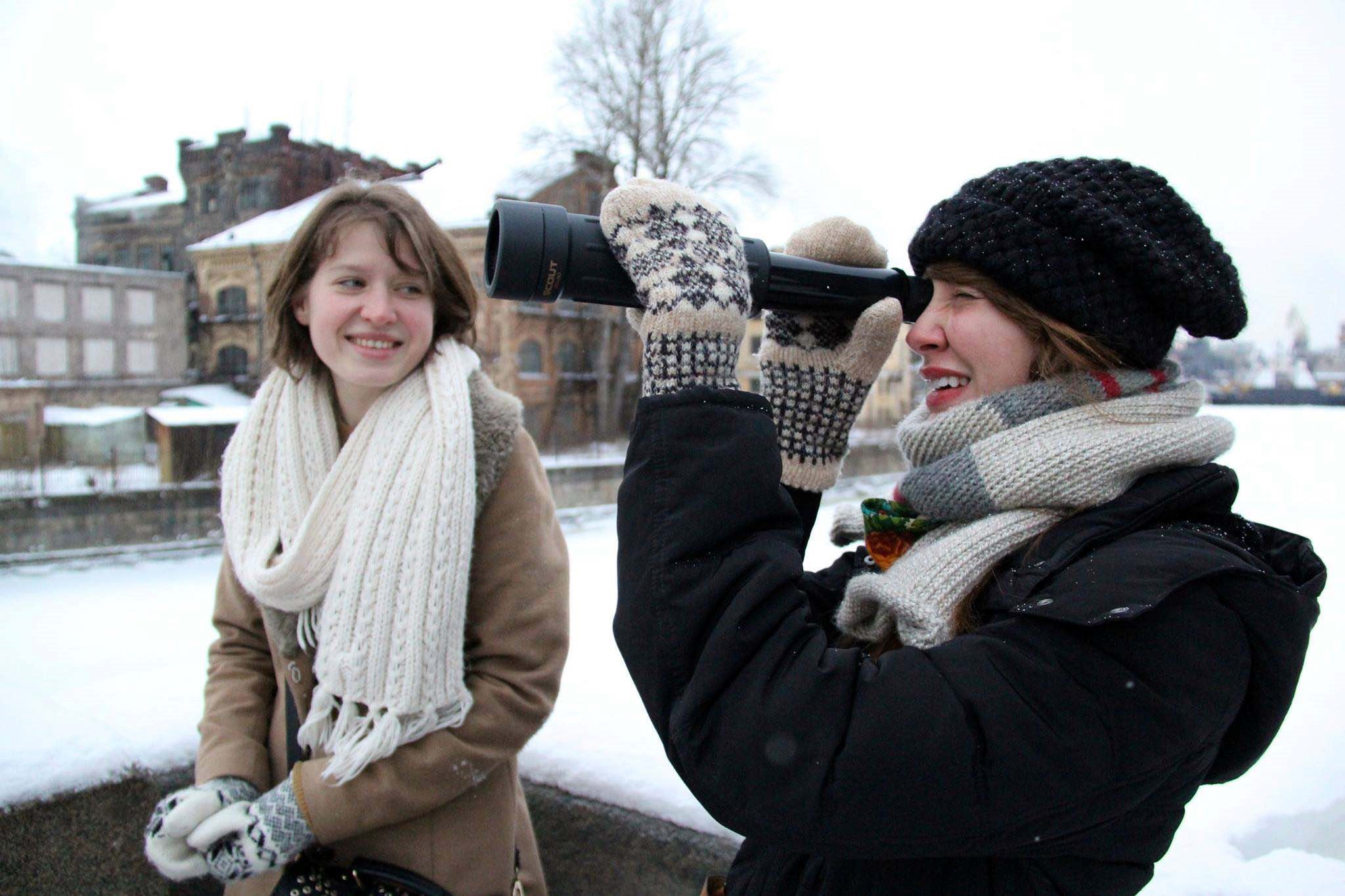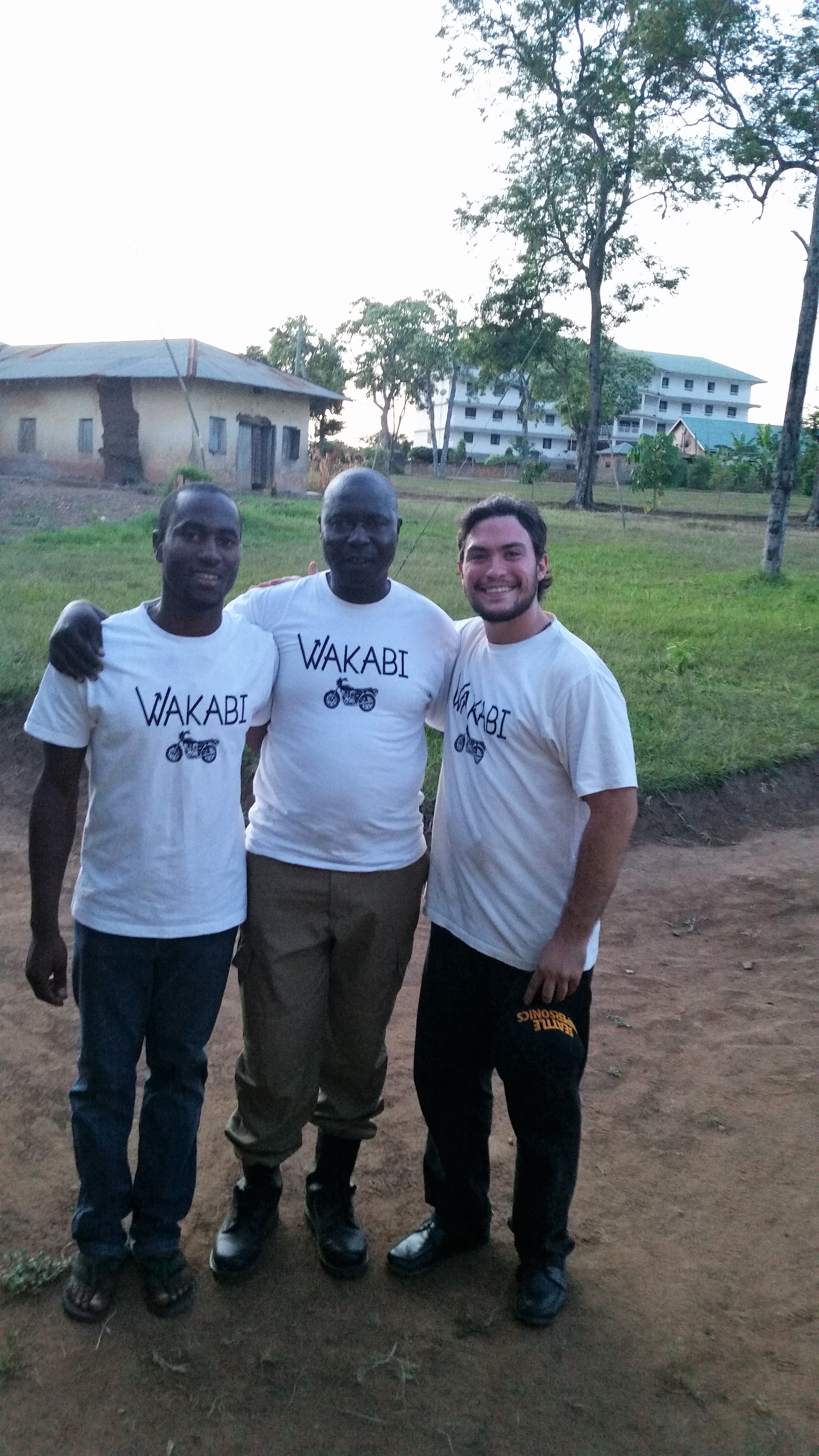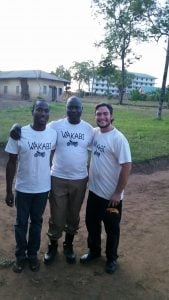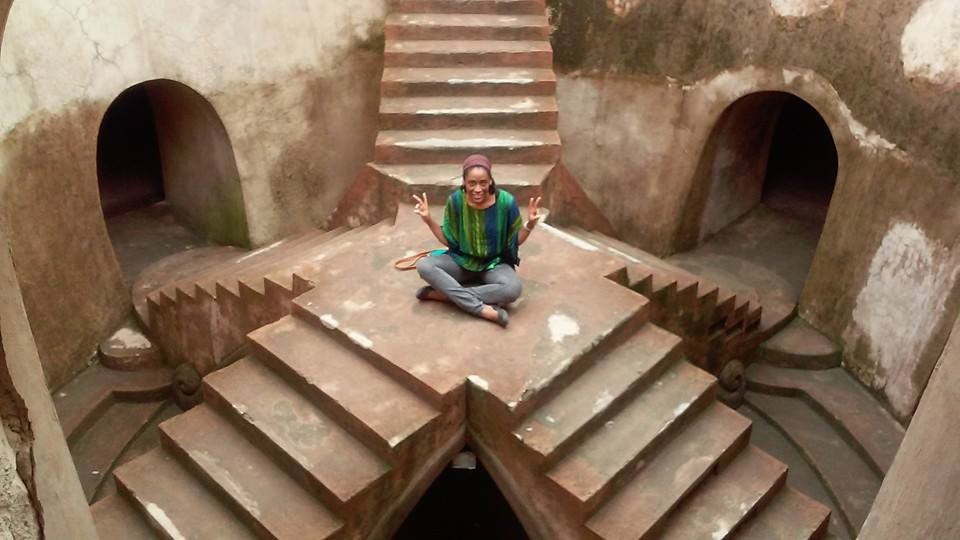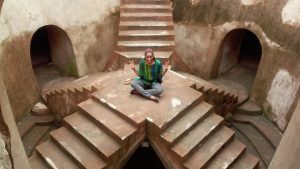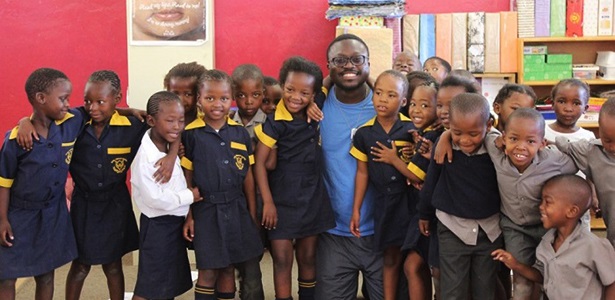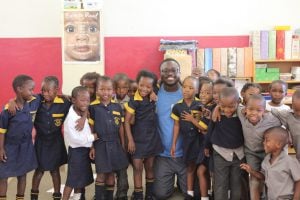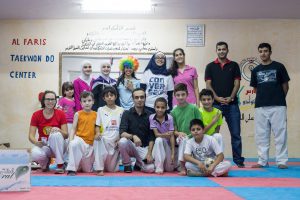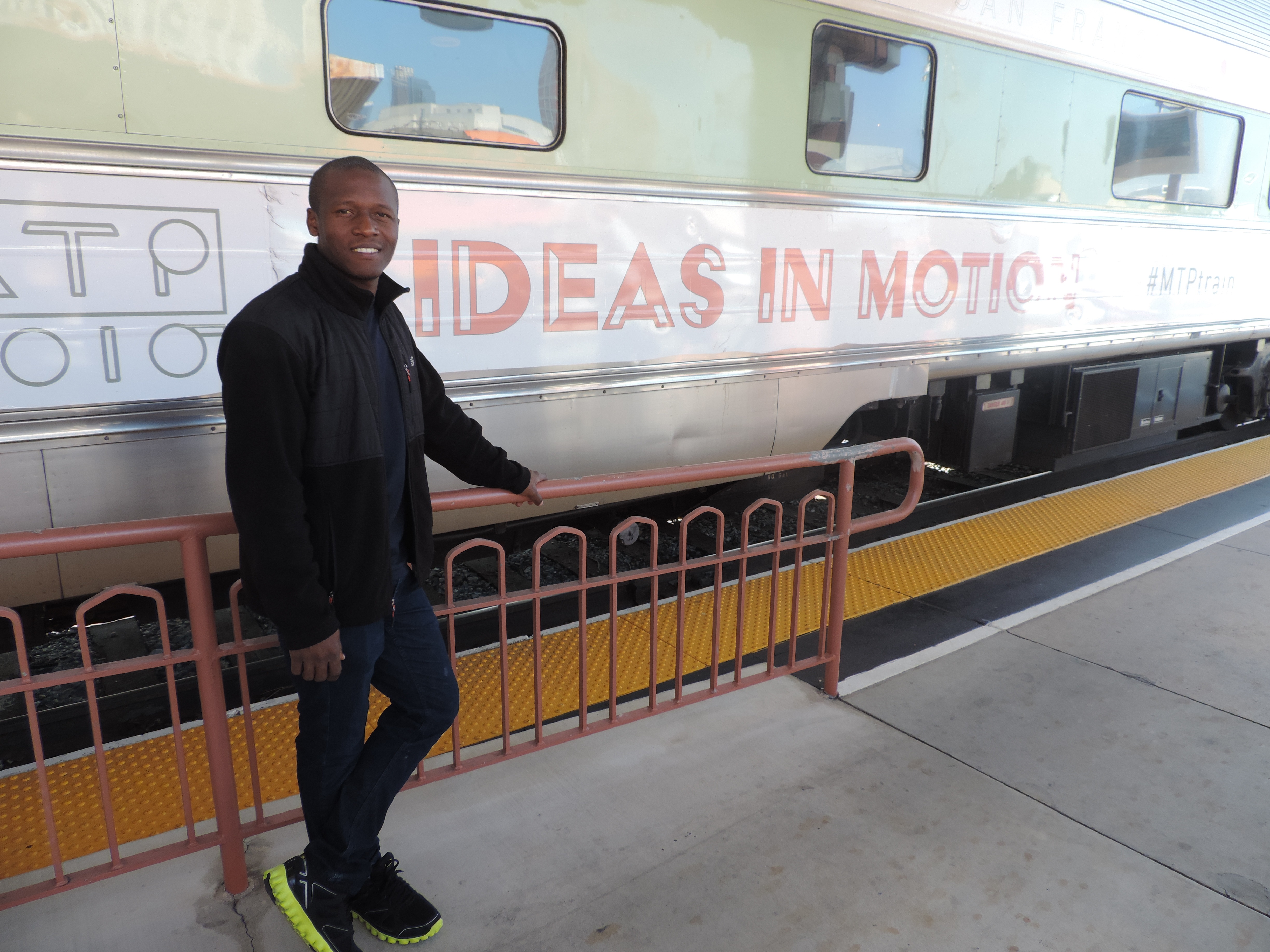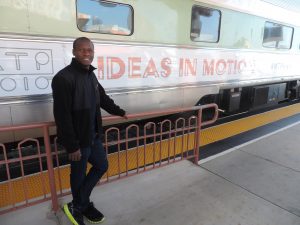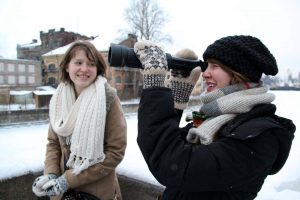
Hanna Miller, 2013-2014, Fulbright English Teaching Assistant to Russia (right), surveying Russia through a telescope
Mississippi Heard began in Russia. On a month-long train ride across Russia during my Fulbright English Teaching Assistantship (ETA), I gathered video and audio recordings while fellow Fulbrighter Stephen Barton photographed the people and places we came across and met. We asked Russians about their perceptions of America and how they defined themselves within their own pre-existing stereotypes.
But, the train ride was just one side of the story. After hearing how Russians felt about my homeland, international (mis)perceptions, and their “true” identity, I was left wondering – what do people from my home think about this country I’ve lived in for the past 10 months?
Born and raised in the South, I grew up in a town of 2,000. When I lived in Naberezhnye Chelny, Tatarstan, Russia with a Fulbright ETA, my students often asked me what life was like in America. They had ideas I came from a land of wealth, privilege, and luxury. While I can’t deny the United States is toppling over with too much, it is fact I grew up in the poorest, fattest, least educated state: Mississippi.

